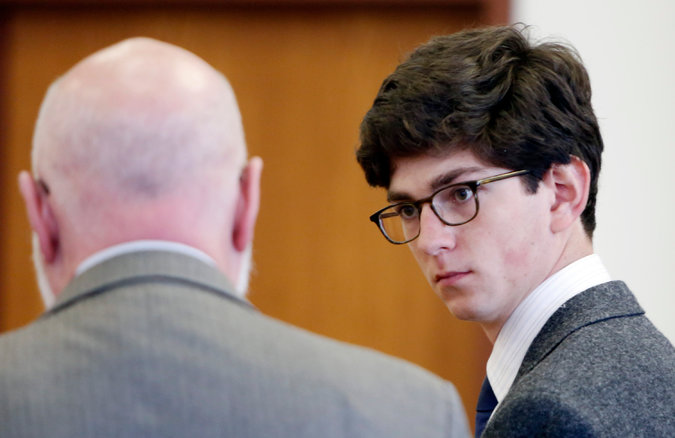This week, Owen Labrie, was found not guilty of forcibly raping a now 16-year-old girl at St. Paul’s prep school in New Hampshire, but he was convicted of misdemeanors for having sex with someone under the age of consent and a felony for using a computer to “lure” her. The trial offers insights into how we view the dynamic of sexual agreement. The victim clearly said “no” several times, but she agreed to kissing and taking her shirt off. Is there a gray area? If you take off your shirt are you saying, I actually want to have sex or maybe you actually just want to have someone touch your boobs? Isn’t that possible? Why is this so hard for the justice system to understand?
“She thought they might kiss but nothing more.”
To me, that sounds like a teenage girl who is willing to trade a kiss or two for social standing. A 15-year-old who is dipping her toes in sexual waters. But too often in our justice system, we don’t accept that women should be able to consent to some but not all intimate contact. In this case, Labrie’s lawyer attempted to minimize the victim’s testimony that she twice told Labrie “no” when he attempted to touch her below the waist by instead focusing on the fact that she had consensually kissed him and had helped him take off her shirt.
The goal is to destroy the credibility of the victim and create doubt that she denied his advances at any point of the encounter. The success of the argument is predicated on having a jury that believes that girls and women only sit in one of two places sexually: They are either virgin pure or they have no boundaries. If you believe that women’s sexuality resides on a spectrum, then a girl engaging in some groping is not a predictor of whether she consented to intercourse.
Our justice system conducts the trial of Labrie and other alleged attackers under the auspice of “innocent until proven guilty.” However, victims are not given the same even-handed treatment. A “no” to a ramping up of a sexual encounter is considered null until the victim proves she really meant it.
No wonder sexual assaults are under-reported. The New York Times reports that the victim was concerned about peer reaction even as she was being raped:
In graphic detail, with a mix of poise, sorrow and anger, she accused Mr. Labrie of violating her trust and her body, while noting that even as what she described as the assault was happening, she worried about offending him or drawing ridicule from other students at St. Paul’s.
If she’d thought far enough ahead, she would have also been worried about the justice system that is supposed to protect her.






